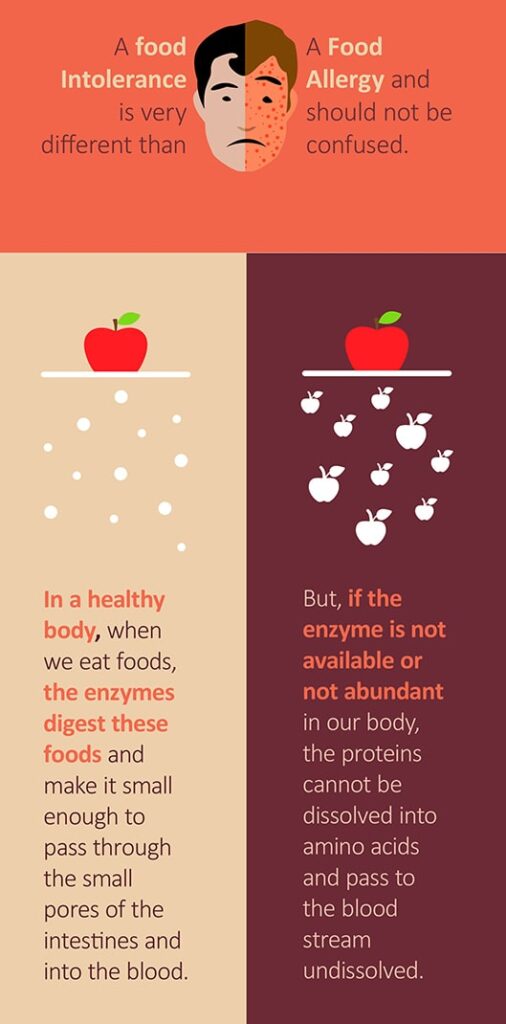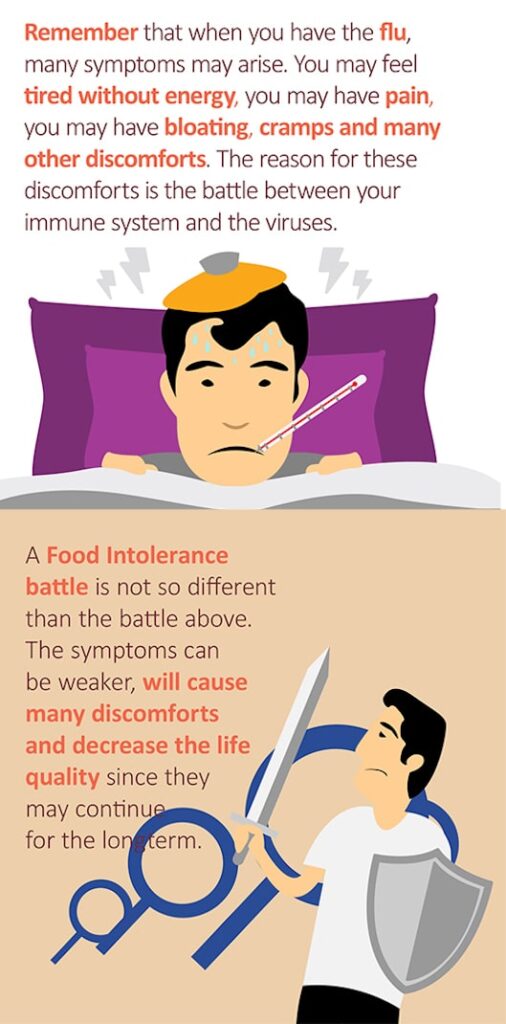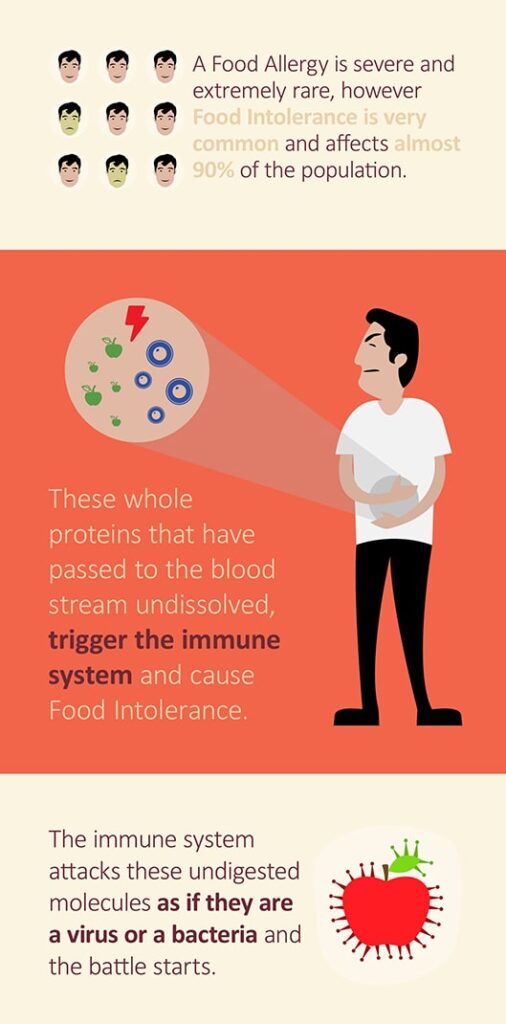Can You Digest That Food?
Food sensitivity occurs when the body can’t completely digest a particular food and the proteins of this food enter the bloodstream undissolved and cause an immune system reaction.
Food Sensitivity and Immune System Reaction
The immune system recognizes amino acids, uses them and does not respond to them. In a healthy metabolism, the proteins are extracted to amino acids. However, due to enzyme deficiencies or other health-related issues, if the protein enters the bloodstream undissolved, the body thinks these proteins are invaders attacking the body, and the immune system fights the attacking proteins by producing IgG antibodies. This process often results in inflammation that can cause many different types of negative symptoms.
The Vicious Circle
When you do not know the foods that you are sensitive to and keep on processing them, the metabolism enters a vicious circle. The more inflammation causes more proteins to enter and the more proteins enter, the more inflammation occurs.,The only way to get out of this vicious circle is by identifying the foods that are poorly digested and then eliminating them from your diet.
Why Do We Need A Test To Determine Food Sensitivities?



What Are The Common Food Intolerance Symptoms?
Weight Gain – Food Sensitivity can cause the metabolism to slow down which may cause serotonin deficiencies that lead to carb and sugar cravings.
Tiredness or Chronic Fatigue – Food Sensitivity, inflammation, and increased CRP levels may result in fatigue.
Migraine and Aches – Inflammation due to food sensitivity causes many discomforts such as aches and migraine.
Bloating and Edema – Inflamed stomach is one of the main reasons for bloating and edema.
Joint Pain – Food sensitivity can be contributing to arthritis symptoms or general joint pain due to an increased level of IgG antibodies irritating joint tissues.
IBS – Irritable Bowel Syndrome – There are medical studies that show the direct relationship between IBS and food sensitivity.
Skin Problems – Food sensitivity may contribute to skin problems such as acne and eczema
Watch the Food Intolerance Video
Weight Gain, Food Intolerance and Serotonin Production
One of the more common side-effects of food intolerance is weight gain. This is mainly due to depleted levels of serotonin, the powerful chemical responsible for maintaining mood balance, social behavior, libido, memory, and digestive health. More importantly, though, serotonin also acts as the natural appetite suppressant in our bodies, making us feel satisfied even when our stomachs are not full.
When fighting a food intolerance, serotonin production (95% of which originates from the cells in our intestines) can decrease dramatically, leading to intense carb and sugar cravings.
This process can send the body into a vicious cycle of mood swings, depression, and unwanted cravings, all stemming from a fight against food intolerance.
How Can I learn My Food Sensitivities?
Without a reliable test, it is almost impossible to identify which foods or drinks are causing the sensitivity reaction. Many institutions are still encouraging people to use diary and best-guess methods to identify and eliminate suspect foods. This can be an overwhelming process and not very effective.
To really know what foods you are sensitive to, and you are sensitive to something, the best way to begin that journey is to take a food sensitivity test. This is going to be a jumping off point to finding out just what works for, or against your body’s particular digestion process.
However “Food Intolerance Test” is a very common term and used for various methods. It is very important to know which is a reliable and scientific test that will give you precise results.
What is a Pinnertest?
“Pinnertest is a food intolerance test, also known as a food sensitivity test, designed to identify if certain foods are making you feel unwell. It operates by measuring levels of IgG antibodies in your body, which are associated with reactions to specific foods.
When your body reacts to certain foods, it produces these IgG antibodies, potentially leading to symptoms like bloating, headaches, or tiredness, although not necessarily immediate or severe reactions like allergies.
Pinnertest utilizes the microarray food intolerance test, a diagnostic tool that analyzes a person’s immune response to various foods. This process involves collecting a small blood sample from the individual, which is then examined using a microarray, a specialized technology capable of simultaneously detecting multiple antibodies.

During the test, the blood sample is exposed to a broad range of food antigens, and any immune reactions, including the production of antibodies (often IgG antibodies), are measured. The results provide insight into which foods may be triggering an immune response, potentially causing symptoms such as digestive issues, skin problems, headaches, or fatigue. Microarray tests offer the advantage of assessing reactivity to numerous food antigens in a single analysis, providing a comprehensive overview of potential intolerances.”





